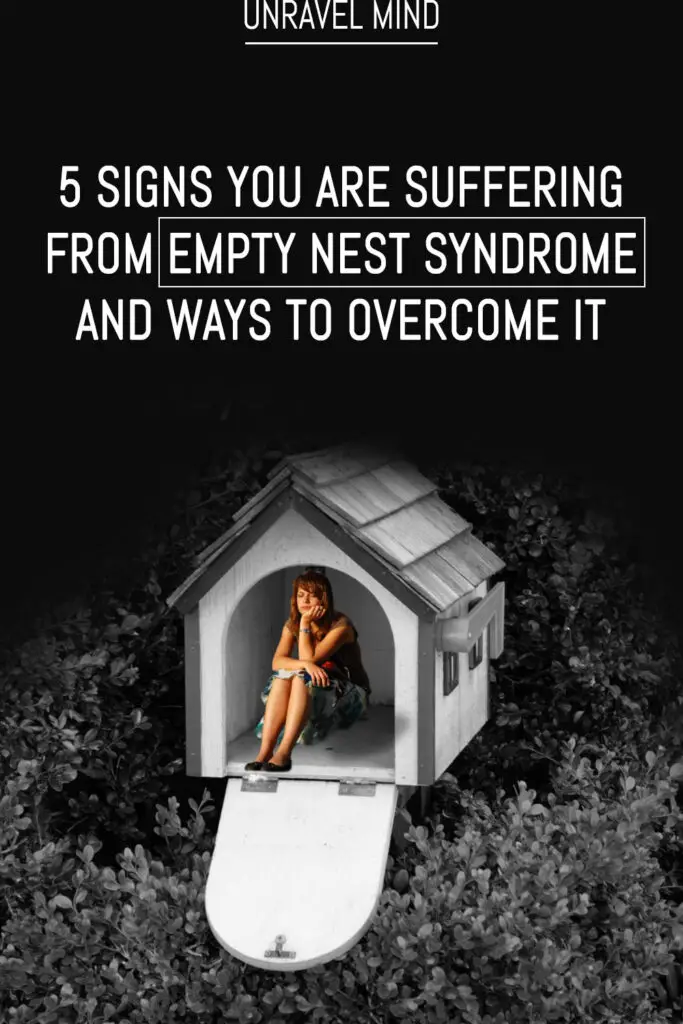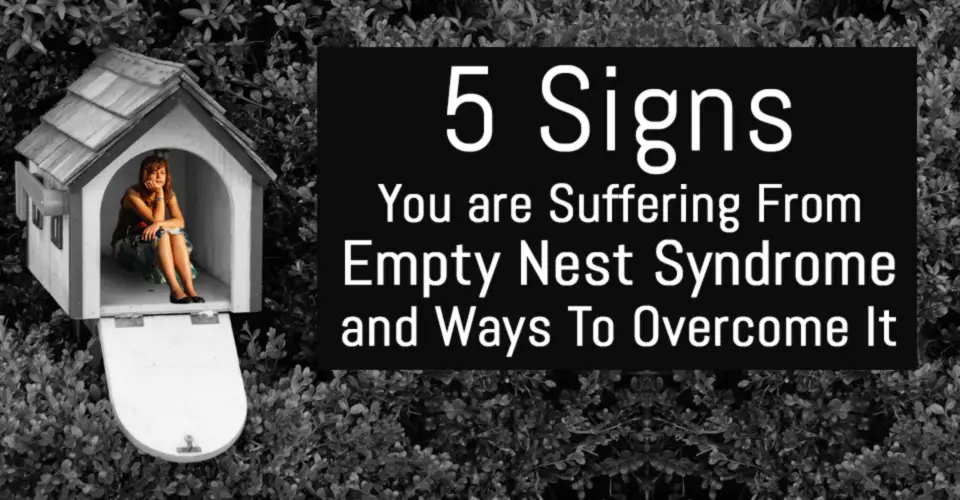Your world revolves around your children from the very moment they were born and the time finally arrives when they gradually enter the stages of adolescence and adulthood and you are left with the memories and experiences of their stage of childhood.
Empty nest syndrome refers to a psychological condition and a period of transition characterized by feelings of sadness, grief, and a sense of loss when your child moves out of the home to pursue their career or job opportunities. A deep feeling of emptiness grips you tight.
It can also occur due to the sudden death of your spouse or divorce, after seeking retirement from a job.
You experience a void that results from the lack of involvement in your former job roles such as daily routine works related to your children, spouse, and your own working hours.
Common signs of empty- nest syndrome
Here are some signs that indicate you are suffering from empty-nest syndrome:
1. Feelings of loneliness and despair:
As a parent, your life circled around your child, starting from getting them ready for school, looking after their studies, or enrolling them into co-curricular activities.
Gradually you get freed from these duties as your child grows up. They learn to do most of their work independently. They become able to commute to places on their own.
As a result, you feel detached from your child’s life. You feel they no longer need you for doing their work.
Feelings of isolation, loneliness, and despair seem to arise in you.
2. Stringent parenting styles seem to lose control:
Parenting is a skill that you master the moment you become a parent. Both types of strict and lenient parenting can be harmful to children.
Parents who exercise stringent parenting styles fear losing control over their children when they enter the stage of adolescence. It is because adolescence is the stage of rebellious attitude. Children start questioning the instructions dropped at them by their parents.
3. Feeling of worry when children are out of home:
You get anxious when your children are out of home for a long time. You keep calling them and ask about their whereabouts. You doubt them even when they tell you the truth.
You get worried about their security if they move out of the home to some other places to pursue their academics.
4. Lack of cordial relationship with life partner:
It is commonly seen that people tend to lose the charm of a marital relationship after becoming parents. You get so engrossed in raising your child that you fail to realize the fading bond between you and your life partner. This makes your marriage to function less cordially.
You feel a void, a lack of attachment with your partner when your child becomes an adult. One of the partner’s death aggravates the situation.
5. Lack of social contacts:
After stepping into parenthood you refrain yourself unknowingly from your peer groups. You no longer get the opportunity to meet your friends and relive your younger days.
You bind yourself into the duties of a parent. You feel socially alienated when your child forms their own band of friends and enjoys their companies that once were your part of life too.
You sink more into emotional distress.
Studies suggest empty- nest syndrome is more prevalent among women than men. Women suffer mostly because being a mother they are more mentally and emotionally attached with their children than men.
It takes time to accept the new change of roles in your child’s life. As a parent, you are into a period of transition from early adulthood to late adulthood and so your child.
The stages of life come with certain physical and emotional changes within us as an individual. We need to learn the ways to deal with it.
Steps to deal with empty- nest syndrome:
To overcome the predicament you need to follow these simple ways.
1. Try to accept the change
Every relationship is subject to change at a certain stage of life. As an individual, we perform various roles in our lifetime. The most crucial moment we face when the transition occurs from one life stage to another.
The changes that we encounter on emotional and physical levels creates a conflict in us. These conflicts worsen our well-being when we refuse to accept the changes.
To accept the change of your role in your child’s life. Accept it with positive perspectives. Every change brings some goodness.
The new change can be an opportunity to introspect yourself which you might have lost long back because of your persistent duties towards your child.
2. Establish a friendly relationship with your children:
Your children can be your closest friend after they become an adult. It is a two-way process.
Try to build up a friendly attitude towards your child. This will both help your child to share their deepest secrets with you and you will also feel emotionally attached to your child.
3. Maintain a healthy distance from your child:
You need to provide a personal space to your children when they are stepping into the stage of adolescence. It is important for you to understand that your child has a separate social world of their own apart from family.
Constantly intruding into their life, academics and social relationships can make them feel irritated and an attempt from your part to curb their freedom of personal boundary.
So not to become a violator of your child’s privacy, maintain a healthy distance from your child. Keep in touch with your children through occasional phone calls, text messages.
4. Reinvent your long- lost hobbies and activities:
Parenthood might have ceased you from nurturing your hobbies and the activities you loved to perform previously.
If so, then after your children grow into an adult then it is a golden period to reinvent the qualities in you such as writing, singing, dancing, acting, and many more.
Join some cultural institutions because the presence of other members in the group will motivate you to furnish your skills.
5. Reconnect with your friends:
Friends are our life- long companions. After marriage and children, we lose touch with our old friends.
Reconnect with your friends on social media. Engage in meet-ups and social outings with your friends. This will help you to re-visit your childhood memories and early days of adulthood.
Spending some good time with your partner can make your relationship stronger.
Engage yourself in something that leads to your happiness is all that is needed.
Read More
3 Reasons Why We Struggle Chasing Things Beyond Our Reach And What To Do About it
Pin it



